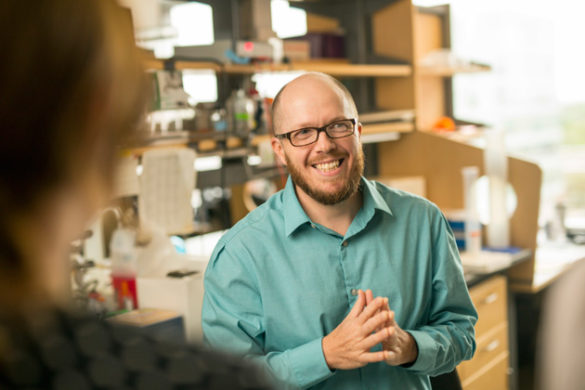Antibody “street block” permits fine-tuning for cardiac restoration, decreases danger of coronary heart failure | Vanderbilt Information
[ad_1]
A couple of million People per yr expertise myocardial infarction, generally referred to as a coronary heart assault, in addition to the therapeutic and rebuilding section that begins shortly thereafter – a sophisticated course of which entails reworking and repairing the center.
This course of is named the granulation section and is important for therapeutic. However because of bodily response within the type of irritation and scarring, this section concurrently reduces cardiac perform, considerably growing the danger of future cardiac occasions, together with coronary heart failure.
Now, a brand new research revealed by Vanderbilt mechanobiology researchers particulars a potential answer for fine-tuning irritation and mobile exercise in cardiac restoration – due to an antibody initially developed for rheumatoid arthritis.
The paper is out there at this time within the journal JCI Perception.
The analysis, performed by a collaborative staff from the Merryman Mechanobiology Laboratory at Vanderbilt College and medical analysis labs at Vanderbilt College Medical Middle, seems on the irritation section after myocardial infarction occasions and is the primary to focus on a selected protein, referred to as cadherin-11 – a significant contributor to irritation in cardiac fibrosis.
The brand new findings are important as they construct on present work cadherin-11, together with a 2017 paper from the Vanderbilt staff which confirmed how this specific antibody might goal cadherin-11 to forestall calcific aortic valve illness.
“Some quantity of irritation is important in myocardial infarction, however turns into extreme and causes opposed unwanted effects,” famous senior creator W. David Merryman, Walters Household Chair within the Faculty of Engineering and a Professor of Biomedical Engineering, Pharmacology, Medication, and Pediatrics. “This newest work with the antibody exhibits a brand new skill to take care of extra exact management over the quantity of irritation within the fibrotic reworking course of, which yields decreased scarring and improved cardiac perform.”

Right here’s the way it occurs: Within the aftermath of myocardial infarction, immune cells are first recruited to help in stabilizing and clearing the center of particles. As soon as that course of is full, signaling begins for irritation to kick in and cells referred to as myofibroblasts start reworking. Through the use of the antibody developed for blocking cadherin-11 in sufferers with rheumatoid arthritis, the researchers had been in a position to equally goal and fine-tune the extent of irritation in cardiac restoration, thereby permitting the center to raised recuperate and return to working at a more healthy tempo.
In line with Merryman, the antibody has already been examined for medical use, and because of this new analysis, is more likely to generate pleasure as a post-myocardial infarction therapy.
“Our research utilizing this antibody famous enhancements in each metric,” famous Merryman. “Beginning with calcific aortic valve illness and now with myocardial infarction, we’ve seen important enhancements from short-term coronary heart perform to long-term prevention of development into coronary heart failure. This antibody is a significant step ahead for cardiac restoration.”
This work was funded by the Nationwide Institutes of Well being (HL135790, HL115103, HL146951, and HL007411), the Nationwide Science Basis (1055384 and DGE-0909667), the American Coronary heart Affiliation (15PRE25710333), and the Leducq Basis.
[ad_2]
Supply hyperlink